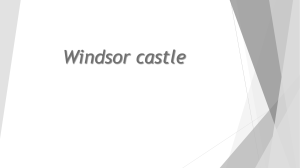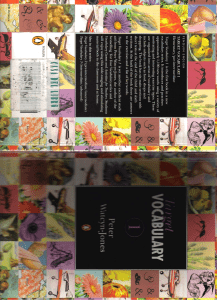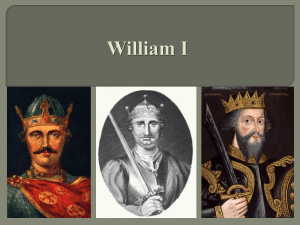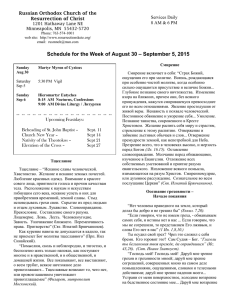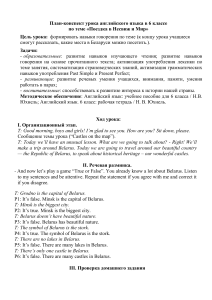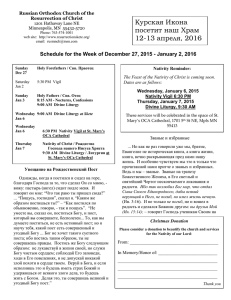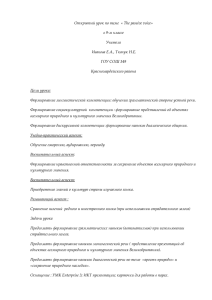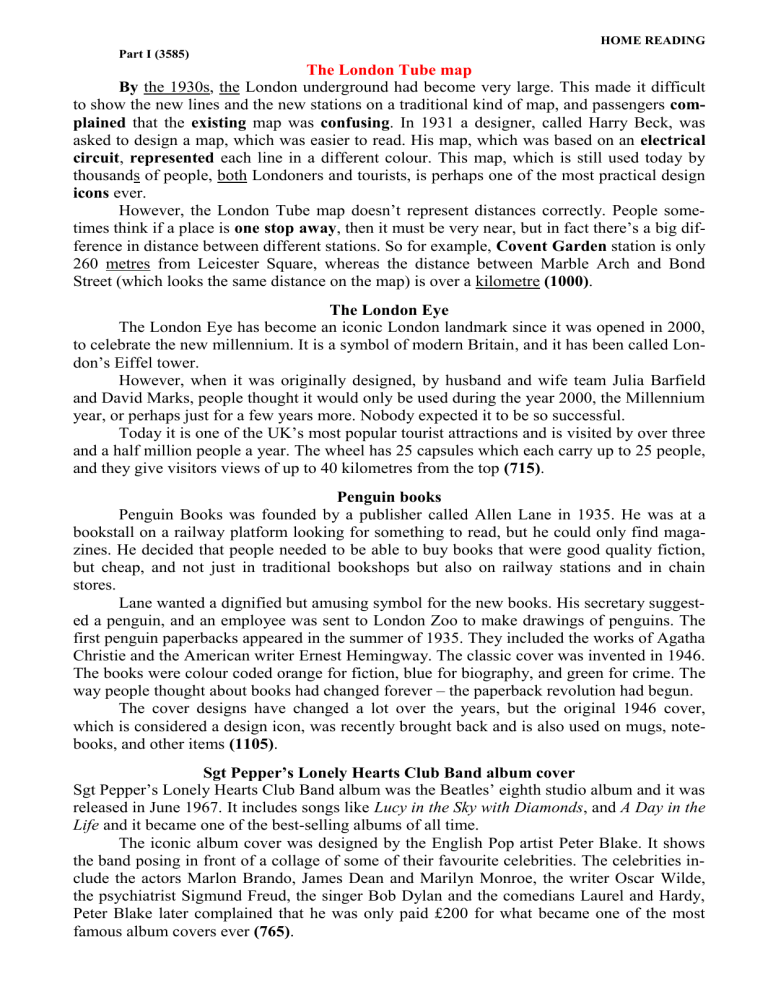
HOME READING Part I (3585) The London Tube map By the 1930s, the London underground had become very large. This made it difficult to show the new lines and the new stations on a traditional kind of map, and passengers complained that the existing map was confusing. In 1931 a designer, called Harry Beck, was asked to design a map, which was easier to read. His map, which was based on an electrical circuit, represented each line in a different colour. This map, which is still used today by thousands of people, both Londoners and tourists, is perhaps one of the most practical design icons ever. However, the London Tube map doesn’t represent distances correctly. People sometimes think if a place is one stop away, then it must be very near, but in fact there’s a big difference in distance between different stations. So for example, Covent Garden station is only 260 metres from Leicester Square, whereas the distance between Marble Arch and Bond Street (which looks the same distance on the map) is over a kilometre (1000). The London Eye The London Eye has become an iconic London landmark since it was opened in 2000, to celebrate the new millennium. It is a symbol of modern Britain, and it has been called London’s Eiffel tower. However, when it was originally designed, by husband and wife team Julia Barfield and David Marks, people thought it would only be used during the year 2000, the Millennium year, or perhaps just for a few years more. Nobody expected it to be so successful. Today it is one of the UK’s most popular tourist attractions and is visited by over three and a half million people a year. The wheel has 25 capsules which each carry up to 25 people, and they give visitors views of up to 40 kilometres from the top (715). Penguin books Penguin Books was founded by a publisher called Allen Lane in 1935. He was at a bookstall on a railway platform looking for something to read, but he could only find magazines. He decided that people needed to be able to buy books that were good quality fiction, but cheap, and not just in traditional bookshops but also on railway stations and in chain stores. Lane wanted a dignified but amusing symbol for the new books. His secretary suggested a penguin, and an employee was sent to London Zoo to make drawings of penguins. The first penguin paperbacks appeared in the summer of 1935. They included the works of Agatha Christie and the American writer Ernest Hemingway. The classic cover was invented in 1946. The books were colour coded orange for fiction, blue for biography, and green for crime. The way people thought about books had changed forever – the paperback revolution had begun. The cover designs have changed a lot over the years, but the original 1946 cover, which is considered a design icon, was recently brought back and is also used on mugs, notebooks, and other items (1105). Sgt Pepper’s Lonely Hearts Club Band album cover Sgt Pepper’s Lonely Hearts Club Band album was the Beatles’ eighth studio album and it was released in June 1967. It includes songs like Lucy in the Sky with Diamonds, and A Day in the Life and it became one of the best-selling albums of all time. The iconic album cover was designed by the English Pop artist Peter Blake. It shows the band posing in front of a collage of some of their favourite celebrities. The celebrities include the actors Marlon Brando, James Dean and Marilyn Monroe, the writer Oscar Wilde, the psychiatrist Sigmund Freud, the singer Bob Dylan and the comedians Laurel and Hardy, Peter Blake later complained that he was only paid £200 for what became one of the most famous album covers ever (765). Part II (3530) You are standing in the place where... A Highclere Castle near Newbury in Berkshire, UK (Замок Хайклер) The castle has been owned by the Carnarvon family since 1679, and the Earl and Countess Carnarvon currently live there. In 2010, film director Julian Fellowes, a close friend of the family, was planning a new TV series about an aristocratic family and their servants during the early 20th century. While he was staying at Highclere Castle, he realized that it would be the perfect place to set his historical drama, and the castle was transformed into Downton Abbey, the home of the fictional Crawley family. The series was a huge success and it has been sold all over the world. Both the interior and exterior scenes were shot in and around the castle itself. In the second TV series the castle is used as a hospital during the First World War. These scenes are based on a real-life event. In 1914, Lady Almina Carnarvon allowed soldiers who had been wounded to be looked after in the castle. Go there Highclere Castle and gardens are open to the public during the Easter and summer holidays, and on many Sundays and public holidays from 10.30 a.m. to 6.00 p.m. Visit the Egyptian Gallery which contains many objects brought back from his travels by Lady Almina’s husband, the fifth Earl of Carnarvon, who famously discovered the tomb of the young Pharaoh Tutankhamun (www.highclerecastle.co.uk). (1380) Cortlandt Alley New York, USA In Hollywood’s version of New York City, the giant metropolis is full of secret alleys where crimes take place, and criminals are chased by the police. In fact there are hardly any alleys in New York today at all. One of the few remaining ones, Cortlandt Alley, has been used for almost all the alley scenes in films and TV series that are set in New York. Films with scenes that were shot there include Crocodile Dundee and Men in Black 3, and TV series like Blue Bloods, Boardwalk Empire, NYPD Blue, and Law & Order. Go there Thousands of tourists want to be photographed in Cortlandt Alley. It is on the edge of Chinatown, in Manhattan, between Franklin Street and Canal Street. In fact it is a perfectly safe place to visit. In real life, it is not by gangsters, but is the home for perfectly respectable businesses such as the New York Table Tennis Federation Training Centre. (910) Christ Church College Oxford, UK This wonderful 16th century college, with a spectacular tower, which was designed by the famous architect Sir Christopher Wren, has an important connection with children’s literature. It was at Christ Church that Charles Dodgson, professor of mathematics, first met the children of the Dean (the head of the College). He used to tell them stories, and was inspired by one of the girls, Alice, to write Alice in Wonderland, in 1865, under the pen-name of Lewis Carroll. Many years later, Christ Church was used as the setting for several film adaptations of some other famous children’s books, the Harry Potter novels. The first time Harry and his friends enter Hogwarts, they walk up the Christ Church staircase where Professor McGonagall is waiting for them at the top. The dining room in Hogwarts is the Christ Church Dining Hall. It could not be used for filming, because it was being used by students at the time, so it was recreated in a studio. Go there Visitors are welcomed throughout the year. However, as the college is a working academic institution, some areas may occasionally be closed to the public. Opening times: Monday to Saturday: 9 a.m.–5 p.m., Sunday: 2 p.m.–5 p.m. (www. Chch.ox.ac.uk) (1240)
